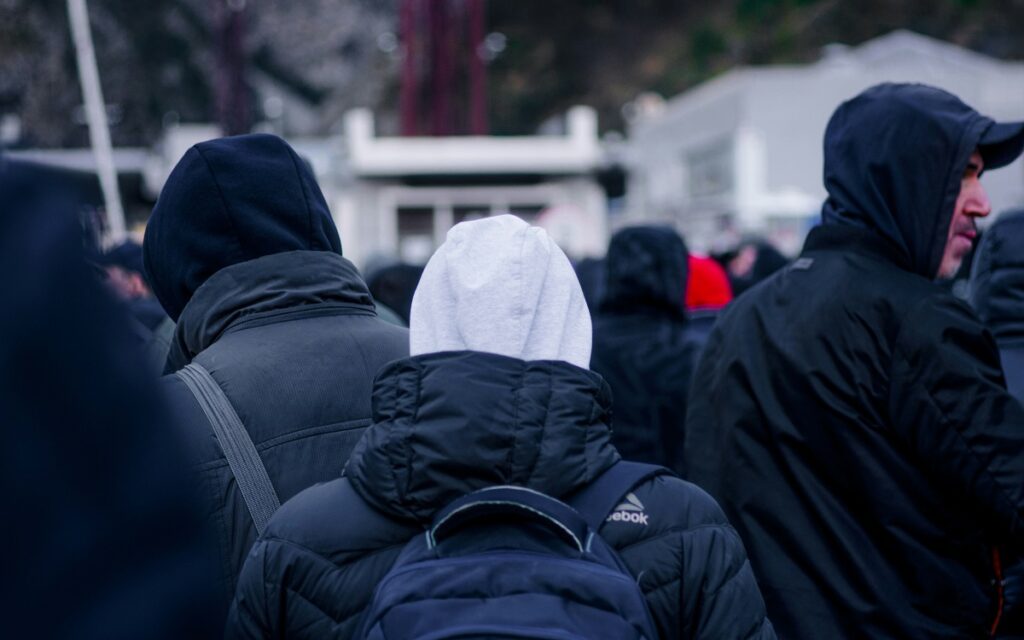This project aims to redefine what realistic outcomes for policing modern slavery should look like. It will explore preventative approaches to policing modern slavery and how these could reduce demand on police services over the longer term.

It has been claimed that there are over 100,000 people currently living in modern slavery in the UK. In turn, the public have been encouraged to ‘see the signs’ of modern slavery that are ‘hiding in plain sight’ and report them to the police. In practice, however, the number of defendants convicted of offences ‘flagged’ as modern slavery has yet to exceed 300 per year. This small number of convictions contrasts sharply with the 17,000+ potential victims of modern slavery being considered within the National Referral Mechanism – the framework for identifying and referring potential victims of modern slavery – at the end of 2023.
Whether this small number of prosecutions or the diminishing protections offered to potential victims of modern slavery are enough to reverse the scale of modern slavery is therefore highly questionable. Indeed many of the commitments made to protect victims in the 2015 Modern Slavery Act have been undermined by subsequent immigration legislation. Foreign national applicants within the National Referral Mechanism are at risk of being deemed ‘a threat to public order’ if they have been smuggled into the UK clandestinely, travelled on false documents, entered on tourist visas, or if the government decides levels of illegal immigration into the UK are posing a threat to public services.
There are limits to how criminal justice and immigration controls can redress the scale of modern slavery. Therefore, this project aims to establish what a more preventive approach to policing modern slavery would look like.
Specifically, it will:
- Investigate what kinds of reporting are genuinely useful to police investigations;
- Explore why some charges of modern slavery made by the police do not deliver prosecutions and convictions;
- Scrutinise the evidence presented in successful prosecutions of modern slavery to establish the key drivers of modern slavery;
- Work with multi-agency partners, including government departments, to identify how police understandings of the drivers of modern slavery might feed into preventative strategies that reduce the need for criminal justice intervention in the longer term.
Data will be sourced from four organisations: Greater Manchester Police, Greater Manchester Probation, South Yorkshire Police and the charity Unseen. The project will adopt a four-pronged methodology:
- The project will extrapolate from 2,000 reports to the police what kinds of intelligence most typically lead to a crime of modern slavery being recorded, a victim being identified and a suspect being charged.
- Through an analysis of cases prepared for the courts, the project will seek to establish the main reasons for deciding whether or not to prosecute.
- The project team will construct case studies – relating to sexual exploitation, labour exploitation, domestic servitude, sham marriage and criminal exploitation – using the data shared by the police, probation and Unseen. These will be scrutinised in ‘sandpit’ workshops in which survivors of modern slavery and professionals will be invited to participate.
- The project will assemble a steering group to identify lessons that can be fed into strategies across the public, NGO and business sectors and mechanisms through which police leaders can inform these with a view to reducing the demand for investigations and prosecutions.
Lead investigators
- Professor Rose Broad (University of Manchester)
- Professor David Gadd (University of Manchester)
Postdoctoral researcher
- Dr Andrew Papworth (University of York)
- Dr Christine A. Weirich (University of Leeds)
Advisory Group Chair
- Tom Vander Beken (Ghent University)


